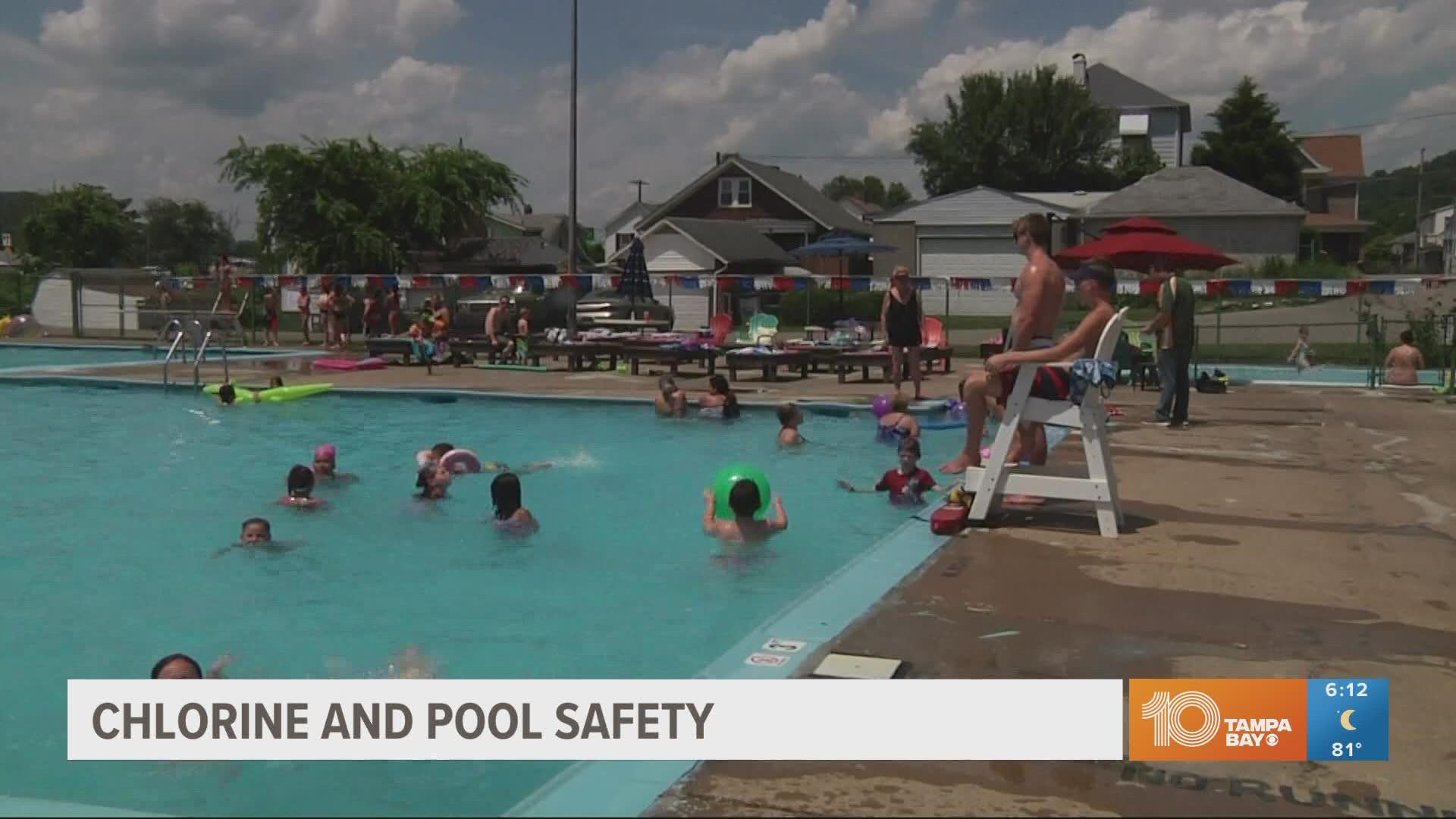ST. PETERSBURG, Fla. — It's Florida — we all hit the pool whether it's your own, a friend's or a public pool. But, there's something you need to think about.
Swimming pool cleaner poisoning is a thing and it could happen to anyone, health experts say.
The University of Florida Health explains it happens when someone swallows the cleaner along with touching or breathing in the fumes.
"These cleaners contain chlorine and acids," the university explains. "Chlorine is more likely than the acids to cause serious poisoning."
The Florida Poison Information Center reported — in June alone — 47 reports of chlorine or pool-related product exposures. That's compared to 27 reports in May and even fewer during months before with just 10 in January.
So here's what you need to know.
The Centers for Disease Control and Prevention says pool chemical injuries lead to more than 4,500 emergency department visits each year.
"Although injuries from pool chemicals are preventable, the number of serious injuries from these chemicals has not changed much in the last 15 years," the government agency explains on its website.
Between the years 2015-2017, the CDC says more than one-third of the injuries were in children or teens, more than half of the injuries happened at a home and around two-thirds of the injuries happened during the summer.
According to Poison Control, there are preventative measures that pool-goers and owners can take to help keep themselves safe:
Swimmers
- Don't go into the water if you have diarrhea.
- Don't urinate or defecate in the pool.
- Rinse off in a shower before you enter the pool.
- Don't drink the water.
Pool owners
- Use chlorinating agents according to the product instructions.
- Ensure adequate ventilation for indoor pools and hot tubs.
- Use test kits frequently to keep chlorine and pH levels within recommended ranges.
- Store all pool chemicals in temperature-controlled environments and away from public access, direct sunlight, and water.
- Always wear personal protective equipment (e.g., gloves, goggles) when handling pool chemicals.
The CDC also recommends keeping pool chemicals out of reach of children, teens and animals — including pets.
But let's say there was an accidental exposure to the pool chemicals. UF Health explains there are specific symptoms to look out for.
For your eyes, ears, nose and throat, health leaders say to keep an eye out of loss of vision, severe pain in the throat and pain or burning in the nose, eyes, ears, lips or tongue.
For the stomach and intestines, look out for blood in the stool, burns of the esophagus, severe abdominal pain, nausea and vomiting. Symptoms for the heart and blood would be collapsing, low blood pressure that develops quickly and too much or too little acid in the blood.
Health leaders say difficulty breathing and throat swelling are symptoms for the lungs and airways.
Lastly, any burns, holes in the skin or tissues under the skin and irritation are signs for the skin that pool chemical poisoning is present.
If anyone believes they were exposed and are experiencing any of these symptoms, immediately seek medical attention.

